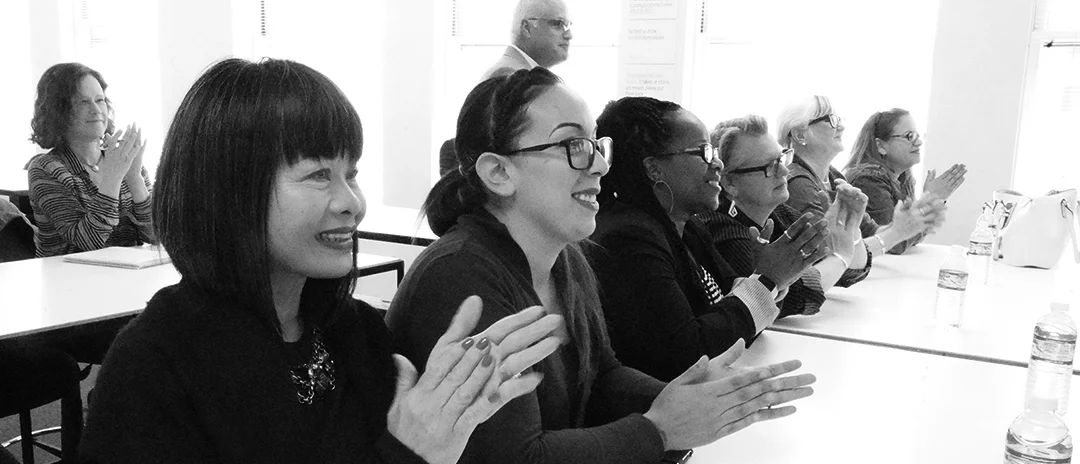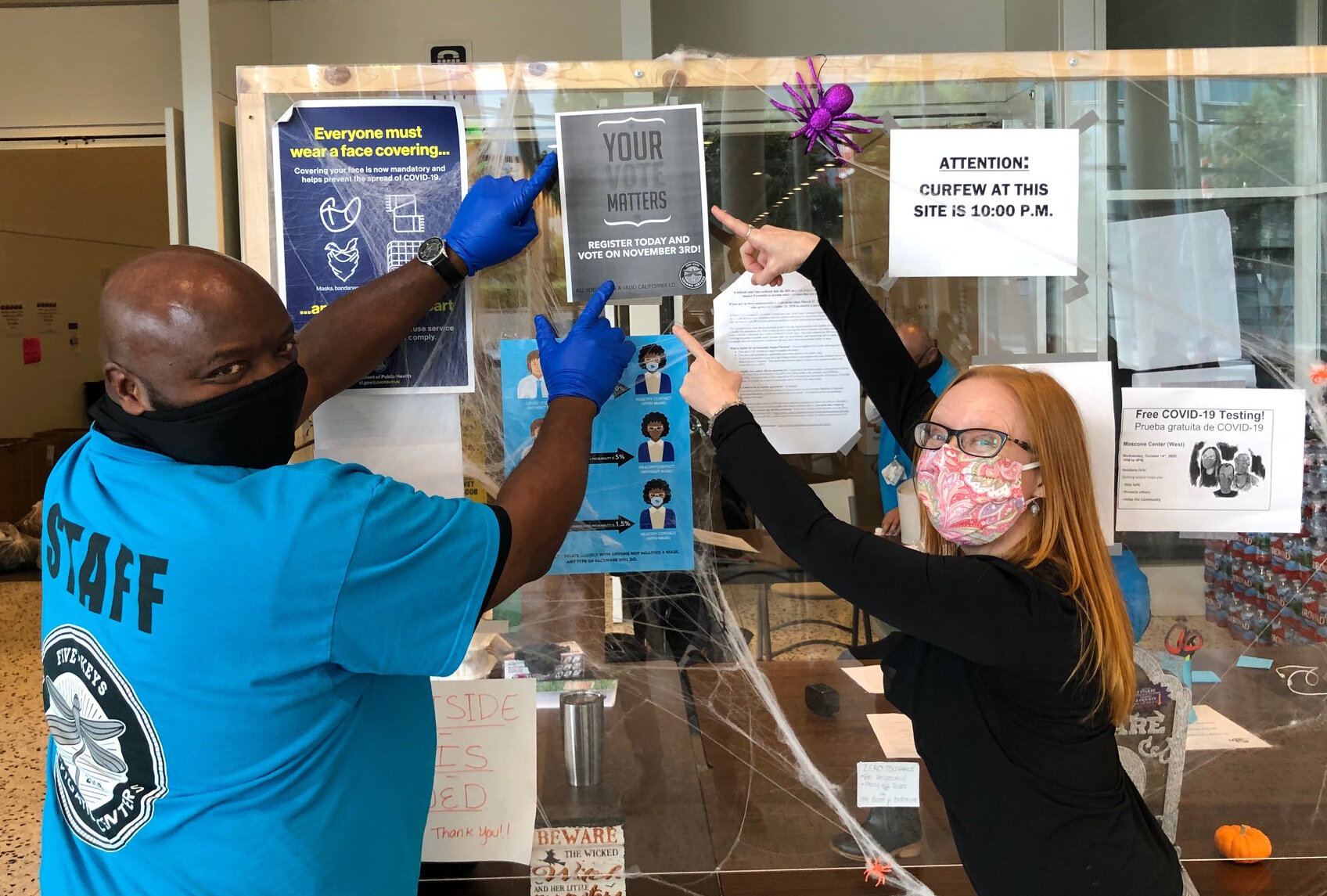“Three years. Twelve arrests. One shot at redemption.” That’s how Tijanna O. Eaton sums up the loss and longing she experienced during the years she spent homeless, struggling with addiction, and/or behind bars.
An honor student in high school, college attendee, and mother, she was on a trajectory for success before the world crashed around her.
But today, released and recovered from that dark period in her life, the 57-year-old Tijanna has transformed the longing and loss into determination to keep fighting for others who have lost freedoms because of addiction, poverty, racism, and other social justice inequities upheld by white supremacy that have beaten them down and thrust them onto the margins of society.
For almost a year, Tijanna has served as the Board President of Five Keys, following 16 years as a board member. She’s also recently wrapped up a successful 20-plus year career as a Senior Information Specialist in Regulatory at Genentech. In October, Tijanna finished UC Berkeley Extension's project management certificate program.
She is grateful to be drug and alcohol free for 28 years. She believes the scars she’s accumulated on the inside have made her more compassionate on the outside. As a former recidivist, Tijanna is committed to carrying out Five Keys’ mission.
“I feel electrical impulses of empathy and impatience whenever I listen to Steve Good’s (Five Keys President and CEO) report during our board meetings,” she writes. “Empathy, because every single program we have in place, every single study packet assembled, and every single interaction with students puts them one, two, or twelve steps closer to graduating. Impatience because I want everyone to get free and educated, now!”
Since she’s been at the helm of the board, Tijanna has made it her mission to witness and support the hard work and dedication of Five Keys’ staff on the front lines of the navigation centers and schools in the San Francisco Bay Area and to explore the innovative agriculture and restoration programs in Southern California.
“I’m trying to get my arms around all the amazing programs Five Keys offers to people who need a place to come for support, and to relax, breathe, and rebuild their lives,” she says. “I want to sit down, have fireside chats, and let all the people that work for Five Keys know they have the loyalty and support the need. I’ve been those people they are serving. I know how significant and life-changing their work can be.”
A Life Interrupted
Tijanna’s nightmare began in January 1990, when she shot her first fix of heroin. Three months later, she was hooked and had developed a daily habit. Less than a year after that, she had starting mixing coke with heroin, and by January 1991 she had lost her job and would lose custody of her daughter soon afterward.
Suddenly homeless, she describes descending into full-on addiction—then becoming addicted to crack—and beginning three years of constant drug use, sleeping in alleys and doorways, using sex work to support her habit, and having frighteningly regular police contact. From April 1991 to March 1994, she was arrested 12 times and made 13 trips to jail on charges including possession of drugs and paraphernalia, prostitution, theft, trespassing, and weapons.
Starting Over
Tijanna credits the SISTER Program (Sisters in Sober Treatment Empowered in Recovery) for kick-starting her transformation. SISTERs is a collaboration between Walden House and the San Francisco Sheriff’s Department and was the country’s first in-jail treatment program, which helps women recover from drug and alcohol abuse. Arrested for the 11th time in November of 1993, she spotted a poster that asked: “Tired of going to jail? Want your kids back?” She remembers thinking: “YES! Yes, I did.” At the time, the program hadn’t even started, and neither the deputies nor other inmates knew what it was. But Tijanna hoped it would be the bridge back to motherhood and the life that ended abruptly after her first arrest.
She volunteered to enter the program on March 2, 1994. Two months later she was transferred to long-term in-patient treatment at Walden House, where she spent two years completing every phase of the program without relapse. Early in her recovery, Tijanna also worked for two years at SISTERs, where she provided group and individual counseling to inmates through this unique women’s recovery program.
Upon graduation from Walden House in 1996, Tijanna began a new life. Over the next few years, she regained custody of her then eight-year-old daughter, got a job, an apartment, started a relationship, and began attending—and still attends—12-step meetings.
Tijanna says it is her hope that people who hear about Five Keys, “will feel the same way I felt and will experience the same miracle I experienced when I went to jail for the last time.”
These days, Tijanna is also at work on a memoir, BOLT Cutters, and is a proud recipient of the Unicorn Authors Club's first Alumni Award, which will help her finish her book. Her memoir chronicles the story of those twelve arrests over the course of three years during her descent into heroin addiction, jail, prostitution, and homelessness and her journey back to a brighter future.
In her book she describes how “before addiction, I had been a ‘responsible member of society,’ having graduated high school with honors, attended four years of college, become an anxious but devoted mother, and was a budding hard rock musician. I drank socially, never exceeding my two-beer limit. Until one day, I did. But how did I make the jump from simple alcoholism to homeless junkie crackhead prostitute?”
Getting clean and sober “opened my eyes to the daily onslaught of discrimination faced by Black people, women, and queers.”
She adds: “My unique experience at this intersection gives hope both to people who have been handled roughly by law enforcement as well as the people who love—or hate—them.”
Today, the words that best describe her are: Advocate. Change maker. And tireless freedom fighter.










